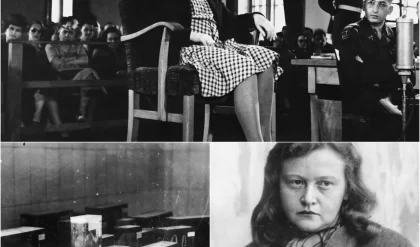The Superman legacy has been a cornerstone of superhero cinema for decades, with each iteration sparking passionate debates among fans. Two films, in particular, have become lightning rods for controversy: Zack Snyder’s *Man of Steel* (2013), which introduced Henry Cavill as the Last Son of Krypton, and James Gunn’s *Superman* (2025), featuring David Corenswet in the iconic role. Released 12 years apart, these films represent distinct visions of the character, each shaped by the cinematic and cultural landscapes of their times. As Gunn’s film hits theaters on July 11, 2025, the comparisons between the two have reignited, highlighting the polarizing choices made by their directors and the evolving expectations of audiences. Yet, regardless of the debates, both films are undeniable chapters in Superman’s storied history, each contributing to the character’s enduring legacy.

*Man of Steel*, released in 2013, was the inaugural film of the DC Extended Universe (DCEU), aiming to reintroduce Superman in a grounded, modern context. Directed by Zack Snyder, the film leaned into a darker, more brooding tone, reflecting the post-9/11 anxieties of its era. Henry Cavill’s Superman was a conflicted figure, grappling with his alien heritage and the weight of humanity’s mistrust. The film’s most controversial moment came when Superman killed General Zod by snapping his neck—a decision that sparked outrage among fans who argued that Superman, a symbol of hope, should never take a life. Critics of the film also pointed to its somber tone and the extensive destruction in Metropolis, which some felt clashed with the character’s traditionally optimistic spirit. However, *Man of Steel* had its defenders, who praised its emotional depth, Cavill’s earnest performance, and its attempt to make Superman relevant in a cynical world. The film grossed over $668 million worldwide, proving that audiences were hungry for a new take on the hero, even if it divided opinion.

Fast forward to 2025, and James Gunn’s *Superman* arrives as the first theatrical film in the newly rebooted DC Universe (DCU). With David Corenswet donning the cape, Gunn’s vision is a stark contrast to Snyder’s. Where *Man of Steel* was grim and introspective, *Superman* (2025) is bright, hopeful, and unapologetically fun, drawing inspiration from classic comics like Grant Morrison’s *All-Star Superman*. Gunn has emphasized authenticity, opting for a “completely natural” Superman with no fake muscles or excessive CGI, as he stated earlier this year. The film follows Clark Kent as a cub reporter in Metropolis, balancing his dual identity while facing off against Nicholas Hoult’s Lex Luthor. Early reactions from test screenings have been overwhelmingly positive, with insiders noting its uplifting tone and heartfelt humor—elements showcased in a CinemaCon 2025 sneak peek where a battered Superman is playfully rescued by his dog Krypto. Yet, the film hasn’t escaped criticism. Some fans, still attached to Cavill’s portrayal, have expressed skepticism about Corenswet’s younger, lighter take, with posts on X calling the new film “too soft” compared to the “epic” scale of *Man of Steel*.
The controversy surrounding these two films often centers on their tonal differences and how they interpret Superman’s core values. Snyder’s Superman was a god-like figure forced to make impossible choices, reflecting a world grappling with fear and division. His decision to kill Zod, while divisive, was framed as a tragic necessity, a moment that shaped his no-kill rule in later DCEU films—a rule some felt should have been inherent from the start. Gunn’s Superman, on the other hand, embodies hope and kindness from the outset, aligning with the character’s traditional depiction as a beacon of light. This approach resonates with fans who felt *Man of Steel* strayed too far from Superman’s essence, but it has also drawn ire from those who appreciated Snyder’s darker, more grounded take. Posts on X reflect this divide, with some users arguing that “Gunn’s Superman is what we need in 2025—a symbol of hope,” while others lament that “Cavill’s Superman had depth and stakes that Corenswet can’t match.”

Beyond tone, the films differ in their technical approaches. *Man of Steel* relied heavily on CGI to depict Superman’s powers and the destruction of Metropolis, a choice that some felt aged poorly by 2025 standards. Gunn’s *Superman*, with a reported runtime of 2 hours and 20 minutes, uses practical effects wherever possible, including real sets for the Daily Planet and the Fortress of Solitude, as seen in recent trailers. This commitment to authenticity has won over many fans, though some argue it lacks the raw intensity of Snyder’s action sequences, like the Smallville battle in *Man of Steel*. Additionally, Gunn’s inclusion of a broader DCU cast—Mister Terrific, Hawkgirl, and Green Lantern Guy Gardner—sets a more interconnected tone, unlike the standalone focus of *Man of Steel*.
Ultimately, the debate over *Superman* 2013 vs. 2025 underscores the challenge of adapting a character as iconic as Superman. Snyder’s film took risks to modernize the hero, while Gunn’s seeks to restore his classic optimism, reflecting the cultural shift toward hope in a post-pandemic world. Both films, flaws and all, are integral to Superman’s cinematic journey, offering distinct lenses through which to view the Man of Steel. As fans continue to clash over which version reigns supreme, one truth remains: Superman’s story is far from over, and each chapter, whether controversial or celebrated, keeps his legend alive for new generations.





